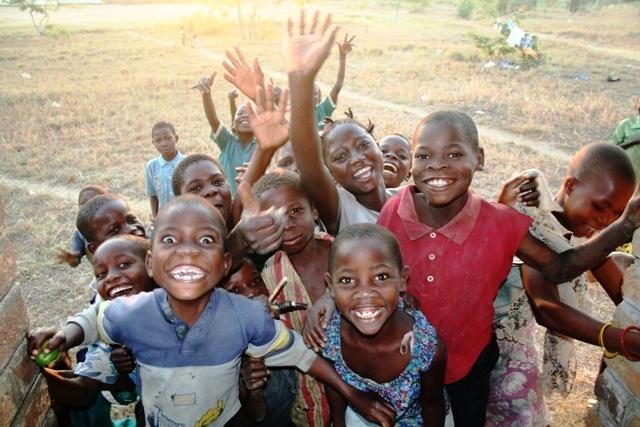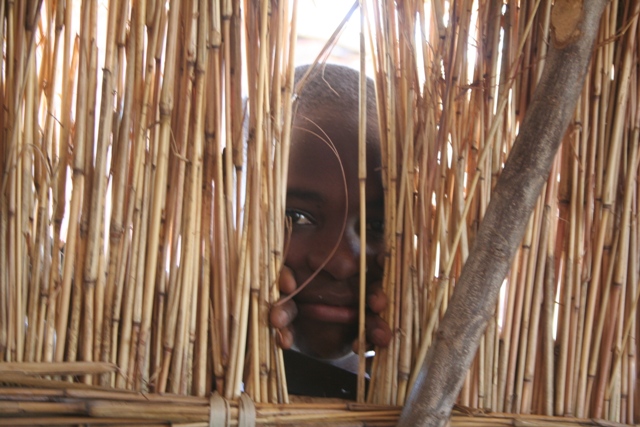update 26.
we love it, we hate it, it's africa
Cycling through Malawi
11 September 2008
Total kilometers cycled: 40,926 (25,578 miles)
Specific country info on routes & roads/food & accommodation/the locals available here.
19 Number of nights in the tent
1 Number of nights in a resthouse
0 Hours of peaceful sleep in the above mentioned resthouse
0 Number of Malawians who can accurately judge the distance to the next town
1 Number of Malawians who will admit to being clueless about distances
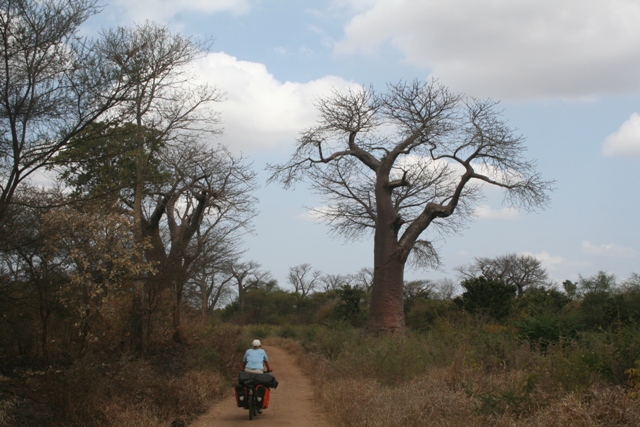 It
was wonderful to be back in Africa after being surrounded by a billion
plus Indians for six months...the humbling emptiness of the vast open
spaces, the exuberant greetings of both adults and children
as they welcome the Mzungus trundling past on their bikes, the magic of the fiery reds and oranges as the
sun sets in the bush. But then comes the moment when you snap
and suddenly remember why you desperately needed a break from
Africa in the first place. A little bit like Christmas time when
you've been looking forward to getting all the relatives together for
the holidays and then once you've gathered around the dinner table
together you realize why you moved to a far off city in the first place.
It
was wonderful to be back in Africa after being surrounded by a billion
plus Indians for six months...the humbling emptiness of the vast open
spaces, the exuberant greetings of both adults and children
as they welcome the Mzungus trundling past on their bikes, the magic of the fiery reds and oranges as the
sun sets in the bush. But then comes the moment when you snap
and suddenly remember why you desperately needed a break from
Africa in the first place. A little bit like Christmas time when
you've been looking forward to getting all the relatives together for
the holidays and then once you've gathered around the dinner table
together you realize why you moved to a far off city in the first place.
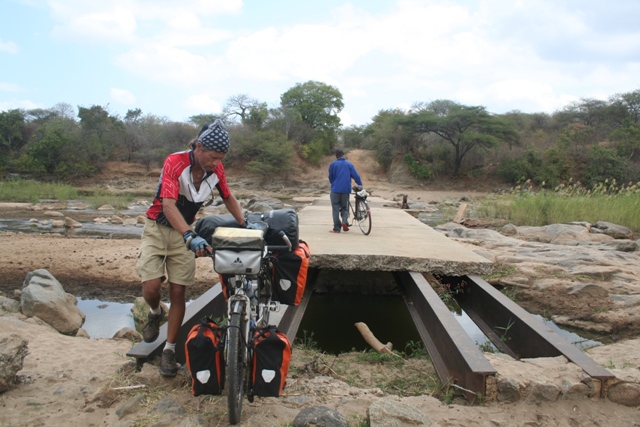
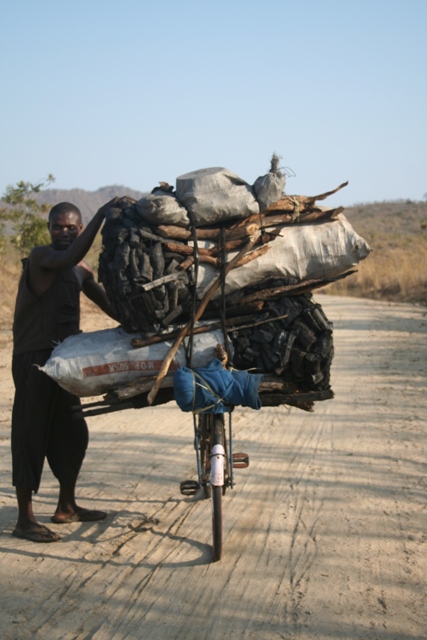 So
I still can't fathom why we trusted the eager young man at the
restaurant who persuaded us to take the 'shortcut' from the Mozambique
border to Malawi's economic capital, Blantyre.
So
I still can't fathom why we trusted the eager young man at the
restaurant who persuaded us to take the 'shortcut' from the Mozambique
border to Malawi's economic capital, Blantyre. "All paved ,madame. No up and down. Flat. Completely flat. Best way for you."
The truck driver from Zimbabwe who had joined in on the conversation knew nothing of the road.
"Not allowed for lorries," explained our local expert. "Only local traffic, mini-buses, private vehicles."
Uh-huh. Sounds good. We paid for our plates of rice and beans and we were off.
No matter that once we found the turn-off to the shortcut, it became patently clear that the road wasn't paved. Still we continued--on a sandy track and through dry river beds where bridges had been washed away--thus proving that man is not a rational being. The traffic consisted of a small army of muscular men on rickety bicycles who were ferrying precarious loads of
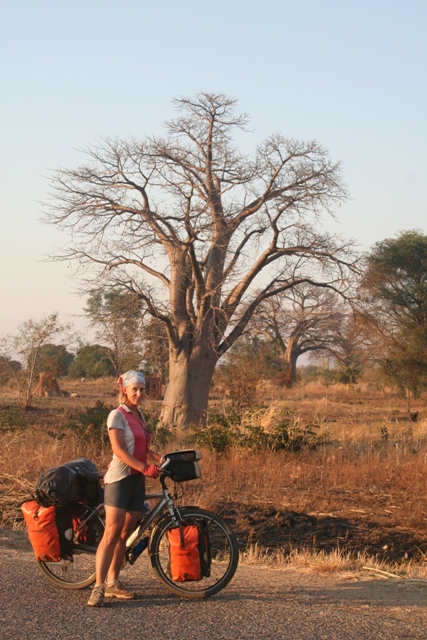 charcoal from their villages in the bush into the market at
Blantyre some 70 odd kilometers away. The guys had a much tougher
time than we did and spent far more time pushing than pedaling.
As the sun crept lower onto the horizon we gave up on reaching
Blantyre and sought shelter in a village, while the determined men kept
on cycling throughout the night.
charcoal from their villages in the bush into the market at
Blantyre some 70 odd kilometers away. The guys had a much tougher
time than we did and spent far more time pushing than pedaling.
As the sun crept lower onto the horizon we gave up on reaching
Blantyre and sought shelter in a village, while the determined men kept
on cycling throughout the night. We had an interesting spot to pitch our tent that night. On our return to Africa we'd vowed to give small town guesthouses--the kind that double as brothels and come with an all night disco attached-- a wide berth. With my father-in-law's last words to me before departure (Unless you want to wake up with your throat slit, don't camp in the wild) still resonating in the far reaches of my mind, pure bush camping was out of the question. That left village camping.
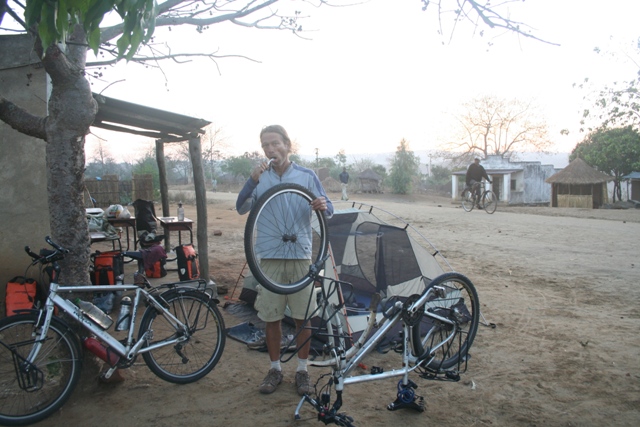 We
followed the usual procedure and asked to speak with the chief or
headman. There wasn't one. Perhaps the director of the
school could help us? Nope, no school there. Police?
Health center? Tea shop? No, negative, nada.
What kind of village was this? Fortunately, elections are
coming up in Malawi and a group of students (who spoke excellent
English) had been sent out from the capital to this far-flung place to
register voters. They kindly suggested we pitch our tent next to
the hut they were staying in, which just happened to be about one foot
from the main road sandwiched in between the two shops which were of
course selling nothing more than candles, warm coca-cola and stale
biscuits. Given that there had been zero motorized traffic on the
road, we weren't too worried about being flattened by a lorry while we
slumbered. The only disruption during the night were those
charcoal mean as they whizzed past on their bikes under the bright
moon.
We
followed the usual procedure and asked to speak with the chief or
headman. There wasn't one. Perhaps the director of the
school could help us? Nope, no school there. Police?
Health center? Tea shop? No, negative, nada.
What kind of village was this? Fortunately, elections are
coming up in Malawi and a group of students (who spoke excellent
English) had been sent out from the capital to this far-flung place to
register voters. They kindly suggested we pitch our tent next to
the hut they were staying in, which just happened to be about one foot
from the main road sandwiched in between the two shops which were of
course selling nothing more than candles, warm coca-cola and stale
biscuits. Given that there had been zero motorized traffic on the
road, we weren't too worried about being flattened by a lorry while we
slumbered. The only disruption during the night were those
charcoal mean as they whizzed past on their bikes under the bright
moon.
If you ask a Malawian how far it is to the next village or town
you're about as likely to get an accurate answer as when you ask a
Westerner how far it is to the moon. Conversations are inevitably frustrating, but often highly amusing.
Firstly, you must choose carefully your victim. Women, whose
movement is generally restricted to treks to the bush for fetching
firewood and daily trips to the bore hole to collect water, are of
limited interest. Those who greet you with the plural Wazungu,
although you are approaching alone, are under the effects of the
powerful local brew and seeing double. They too will be of little help.
In our experience, a shoeless man is likely to have had little
education and will be unable to grapple with any English beyond 'hello' and perhaps 'give money'.
These are standard phrases in Malawi that even toddlers have
mastered. A man with a watch is always a good bet. If he
has a notion of time, perhaps he also has an inkling of distance.
Still, accurate information is hard to come by and estimations
can vary widely.
How far to Bwengu?
Far,sir, it is very far.
Yes, Yes. But how many kilometers?
He hesitates, then turns to others in the group and a lengthy discussion in the local language ensues.
9 kilometers.
Now, that would be nice, because we're hungry and tired and would like to reach Bwengu very quickly, but nearly impossible judging from our map.
9 kilometers. Are you sure?
Yes, 9 kilometers, sir. You will reach before nightfall.
How far to Lilongwe?
It's a test. The capital is still several hundred kilometers away.
Laughter from the crowd. These foreigners sure are stupid. Nobody can ride a bicycle all the way to the capital.
Oh, very, very far. Maybe more than 20 kilometers.
The ugly tourist in us takes over and we can hardly hide our smirks.
Oh, you are right. Very far. Thank you for the information. Bye, Bye.
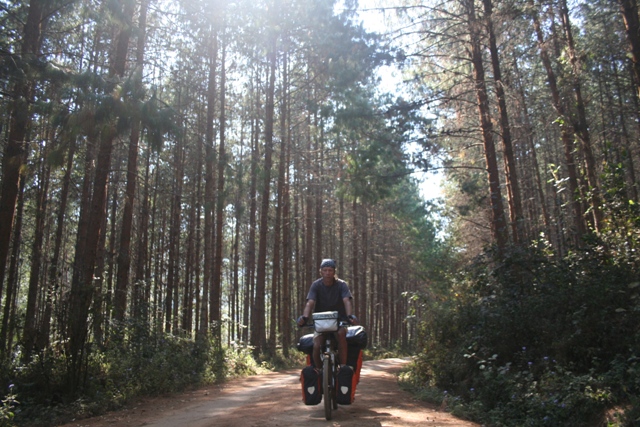 Malawi
has been blessed with more than just a magnificent lake. The
Zomba plateau is a refreshing paradise of waterfalls, mountain streams
and cedar forests where the climate is ideal for growing raspberries
and strawberries. We camped alongside the fish at the Trout Farm
and spent the evenings chatting with the watchmen around a roaring
campfire. On a day trip to visit Williams Falls ( a must see given
the name) and some scenic viewpoints we even managed to get ourselves
lost. Well, Eric says we weren't technically lost, but for me, spending a few extra hours exploring all the paths till
the right one eventually leads you back to camp counts as lost.
Malawi
has been blessed with more than just a magnificent lake. The
Zomba plateau is a refreshing paradise of waterfalls, mountain streams
and cedar forests where the climate is ideal for growing raspberries
and strawberries. We camped alongside the fish at the Trout Farm
and spent the evenings chatting with the watchmen around a roaring
campfire. On a day trip to visit Williams Falls ( a must see given
the name) and some scenic viewpoints we even managed to get ourselves
lost. Well, Eric says we weren't technically lost, but for me, spending a few extra hours exploring all the paths till
the right one eventually leads you back to camp counts as lost.
We had no qualms about ditching the "I'm experiencing a new culture" homily to laze around the sparkling lake for a few days like the rest of the tourists. Watched the sunrise, enjoyed a cup of morning coffee without the pressure to pack up and get moving before the heat, read books on the beach, gazed at the colorful fish, watched the sunset. A peaceful, easy life.
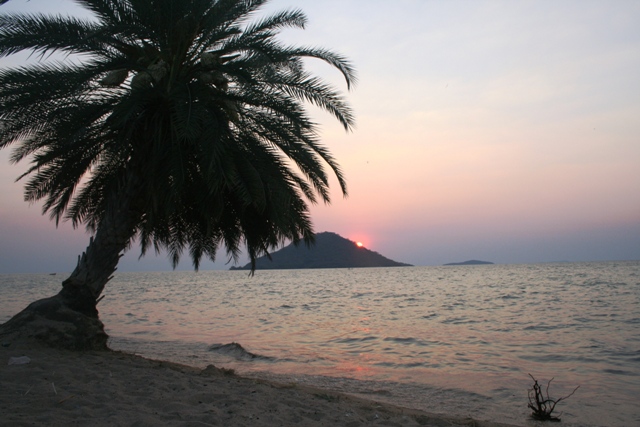
contact us at: worldbiking@gmail.com
Support our chosen charity and help educate girls in Africa-more info here

